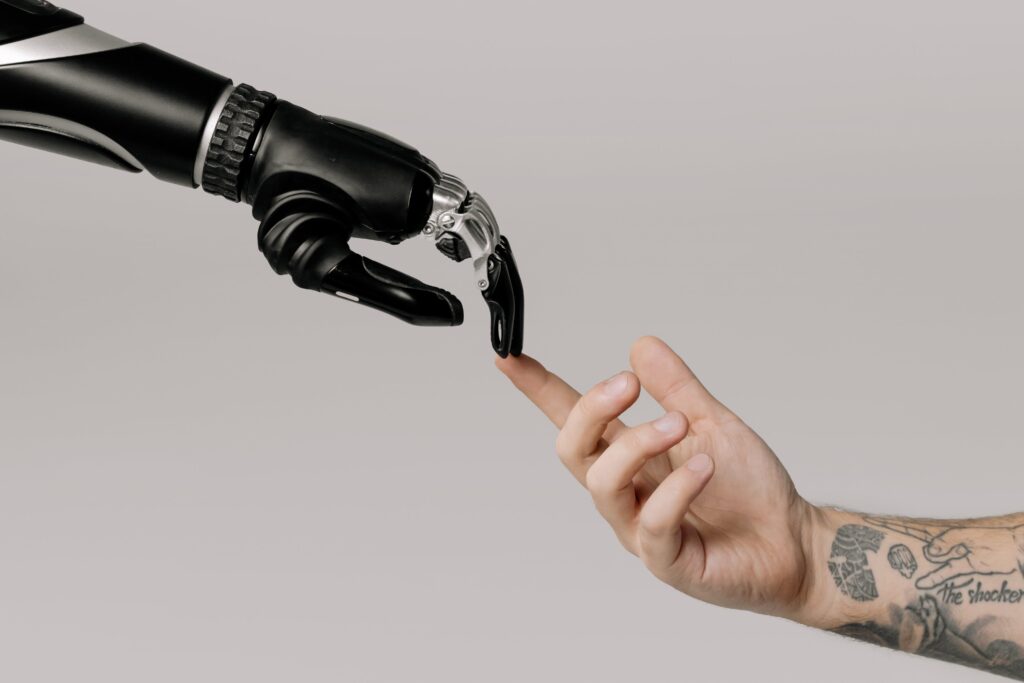AI… the hottest topic of 2023.
So many events, so many articles, so much research.
Our present is changing; we are not the same anymore. The older generation is engaging in new arguments about how our generation is becoming increasingly lazy, dependent on technology, and alienated from the internet world.
Employees are more fearful of being replaced, and companies are trying to use technology to grow their businesses, facilitate processes, and reduce operational costs.
As a society, AI brings forth so many different feelings, along with numerous risks and opportunities.
I want to discuss AI in the workplace and the perception it has on the workplace.
I noticed that in the past six months, a new question has emerged when delivering a piece of work.
Your manager asks, “Is it you or ChatGPT?”
This question made me think.
If we are embracing technology as a business, why is there always a negative connotation when someone actually uses the technology to deliver?
Why does it feel like, if you answer, “I used ChatGPT,” it makes you less smart, less capable, less qualified…?
Why do people tend to justify their usage with something like, “Yes, I used ChatGPT, but only for…”
Let’s see what research says.
The Power Dynamics in the AI Usage
According to research, data shows that people in leadership positions use AI more frequently. In fact, according to a report by Boston Consulting Group, 80% of leaders say that they use generative AI regularly, compared to 20% of frontline employees. One possible explanation for this discrepancy can be the fact that among leaders, 68% believe that their organization has an adequate responsible AI program in place, compared to frontline employees, of whom 29% feel the same way.
What is really interesting here is the fact that leaders are embracing the usage of AI, whereas workers are still a bit hesitant in adopting and embracing the tool. This could be because of their lack of education and lack of support that they receive from their leaders. From my observation, it can also be associated with the negative or belittling speech coming from those leaders who advocate for AI themselves.
The Perception Bias: Affecting AI perception?
Perception bias refers to a cognitive inclination wherein our minds unconsciously form conclusions according to our anticipated perceptions or experiences. Once we form an assumption, our tendency is to seek supporting evidence rather than maintaining an open-minded and objective stance toward a given situation. Let’s explore the assumptions we have about using AI and how this may affect the negative connotation that it generates.
So, what is the perception bias about people using AI? According to an article released by Medium, people were interviewed after their usage of AI, and they were asked to share their opinions and experiences, and this is what they found out:
- Employees are taking less time to produce work.
- Workers tend to use ChatGPT as a tool to substitute human effort rather than a complement to amplify their capabilities.
- The use of ChatGPT also reduced performance inequality among participants.
What if the negative connotation is caused by the perception bias because people have some assumptions about AI? Because people know that there is less time used to produce something, does this mean that the quality is going to be poorer? Does this mean that there is an underlying assumption that my bosses will believe that I do have more free time now, and therefore being a loss for the company for not using my time effectively?
The fact that workers use CHATGPT as a tool of substitute for human effort, does this imply that my leaders will assume that I am becoming a lazy employee? That I’m not ‘’hustling’’ anymore? Does the perception of my laziness make me a less valuable employee?
When it comes to inequalities of work, does the assumption here mean that I am not special anymore? Because I am using AI, does this mean that my work has become generic, banal, similar to the crowd?
If business leaders have a perception bias about workers using AI, then imagine how many more hidden assumptions there are.
AI Perception in the workplace: A different Outlook
Another way to look at it can be: Is it me, as an employee, who is having those assumptions in my head? Is the negative feeling that I am receiving just a reflection of my own perception bias? This can explain the fact that, as shown above, leaders tend to use AI more than frontline workers. Because, relying on the data from the same research, leaders are much more optimistic than frontline employees about AI (62% vs. 42%). So if the leaders are optimistic, are using it more, and are better trained to use it. Is my article supposed to be about: Fear of AI in the workplace among workers?
What do you think?

